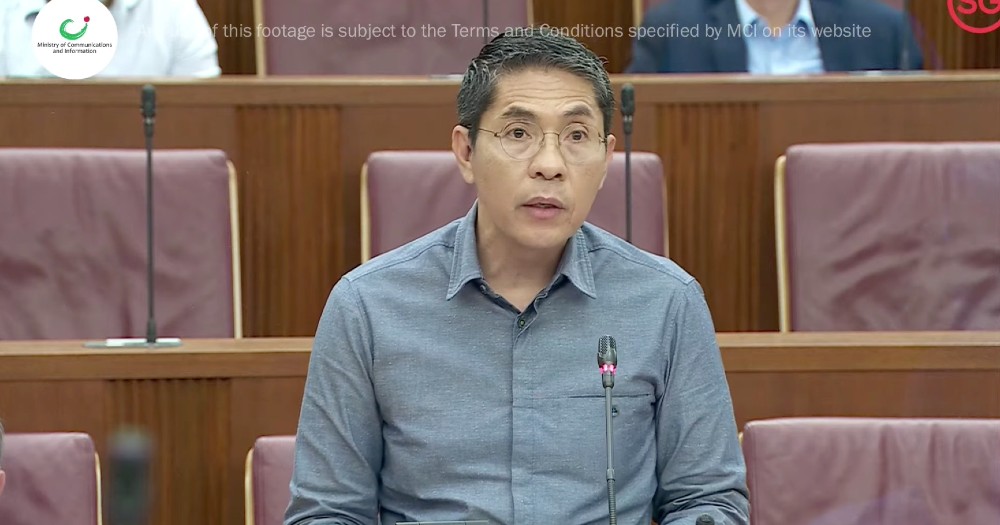Follow us on Telegram for the latest updates: https://t.me/mothershipsg
Second Minister for Education Maliki Osman said that it is unfair to assume that academics in Singapore self-censor or feel inhibited when working on politically-sensitive topics.
Maliki was responding to a parliamentary question by Workers' Party (WP) MP Leon Perera today (Jan. 10), who asked whether the government was planning to look into a survey conducted by AcademiaSG which found that Singapore-based faculty who say they work on “politically sensitive” topics are more likely to feel constrained in their ability to research or engage the public.
The survey said that such constraints may impede Singapore academia's ability to contribute to national debates which "need to be more plural and better informed".
They also said that this under-contribution may also lead to profound and long-term social impacts, one that cannot be measured in global university rankings.
Academia.sg is a website started in 2019 to reflect concerns by academics about the Protection from Online Falsehoods and Manipulation Act (POFMA).
The editors include academics and former academics from local universities.
Maliki: Should not generalise findings from small sample
Maliki said that Singapore’s autonomous universities are committed to safeguarding academic freedom, and doing so has allowed them to attract “top talents”.
Maliki added that the quality of education and research done by the universities are well-regarded internationally.
Referring to the Academic Freedom Survey 2021 conducted by AcademiaSG, Maliki said that the authors themselves noted that they received a 10 per cent response rate, only hearing back from 198 out of the 2,061 academics they had reached out to.
“Among the 10 per cent who responded, only a minority reported significant concerns about academic freedom in Singapore,” he added.
The survey found that almost 22 per cent of respondents said that they faced “extensive” interference by non-academic actors in decision making at their respective institutions, and 77.5 per cent reported “moderate” interference.
Maliki said: “We therefore advise some caution in generalising the findings from the survey as representative of how all academics in Singapore feel.”
Academics in Singapore do not shy away from politically-sensitive topics
Maliki highlighted how academics here have been able to teach, engage in discourse, research and publish on a wide-range of topics, “including domestic politics, race, religion, and gender issues”.
“It would be unfair to our academics to assume that they self-censor or feel inhibited,” he added.
He cited an example of how the National University of Singapore’s (NUS) Faculty of Arts and Social Sciences has a public listing of over 8,000 Singapore-related publications, of which some titles such as “Is the People’s Action Party Here to Stay?” by Bilveer Singh and “Super-diversity and the bio-politics of migrant worker exclusion in Singapore” by Daniel Goh, a former WP Non-constituency MP.
Maliki said that such work has contributed to public discourse on governance, public policy and also informs teaching curriculum.
He also said that the Ministry of Education funds projects that may be considered sensitive, and that autonomous universities here often partner up with government agencies to study “complex issues”.
Some of these include the development of racial attitudes in early childhood and coping strategies among low income households.
Perera did not get to ask a follow-up question
In a Facebook post written after Maliki's reply in parliament, Perera shared how he had first filed the question back in September 2021, but it kept having to be postponed as he insisted that his question be given an oral answer, where it can be debated in parliament.
Perera said he intended to ask a Supplementary Question and raised his hand to do so, but Question Time had ended after Maliki delivered his reply.
The question he intended to ask was:
"Given the serious nature of these findings and the importance of academic freedom for Singapore, will the government be conducting further research to determine the veracity of these findings and, working with the leadership of the autonomous universities, take corrective actions where warranted."
Perera said that it was unclear from Maliki's answer today whether such action would take place.
Perera also pushed back on Maliki's caution against the small sample size in the survey, and said that the sample size of 198 academics who were surveyed "is not insignificant and should not be dismissed out of hand without further research".
Follow and listen to our podcast here
Top photo via MCI
If you like what you read, follow us on Facebook, Instagram, Twitter and Telegram to get the latest updates.
